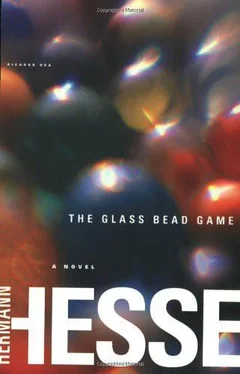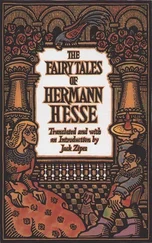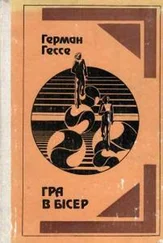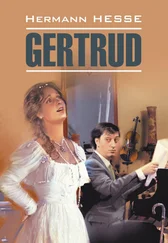Hitherto, by the way, the Glass Bead Game, in spite of its popularity among scholars, had remained a purely private form of exercise. It could be played alone, by pairs, or by many, although unusually brilliant, well-composed, and successful Games were sometimes written down and circulated from city to city and country to country for admiration or criticism. Now, however, the Game slowly began to be enriched by a new function, for it became a public ceremonial. To this day everyone is free to play the Game privately, and young people are especially fond of doing so. But nowadays virtually everyone associates the Glass Bead Game with ceremonial public Games. They take place under the leadership of a few superior Masters who are directly subordinate to the Ludi Magister, or Master of the Game, of their country, with invited guests listening raptly, and a wider audience all over the world following with closest attention. Some of these Games last for days and weeks, and while such a Game is being celebrated all the players and guests — obeying precepts which even govern the length of time they are allowed to sleep — live an ascetic and selfless life of absolute absorption, comparable to the strictly regulated penitence required of the participants in one of St. Ignatius Loyola’s exercises.
There is scarcely any more we need add. Under the shifting hegemony of now this, now that science or art, the Game of games had developed into a kind of universal language through which the players could express values and set these in relation to one another. Throughout its history the Game was closely allied with music, and usually proceeded according to musical or mathematical rules. One theme, two themes, or three themes were stated, elaborated, varied, and underwent a development quite similar to that of the theme in a Bach fugue or a concerto movement. A Game, for example, might start from a given astronomical configuration, or from the actual theme of a Bach fugue, or from a sentence out of Leibniz or the Upanishads, and from this theme, depending on the intentions and talents of the player, it could either further explore and elaborate the initial motif or else enrich its expressiveness by allusions to kindred concepts. Beginners learned how to establish parallels, by means of the Game’s symbols, between a piece of classical music and the formula for some law of nature. Experts and Masters of the Game freely wove the initial theme into unlimited combinations. For a long time one school of players favored the technique of stating side by side, developing in counterpoint, and finally harmoniously combining two hostile themes or ideas, such as law and freedom, individual and community. In such a Game the goal was to develop both themes or theses with complete equality and impartiality, to evolve out of thesis and antithesis the purest possible synthesis. In general, aside from certain brilliant exceptions, Games with discordant, negative, or skeptical conclusions were unpopular and at times actually forbidden. This followed directly from the meaning the Game had acquired at its height for the players. It represented an elite, symbolic form of seeking for perfection, a sublime alchemy, an approach to that Mind which beyond all images and multiplicities is one within itself — in other words, to God. Pious thinkers of earlier times had represented the life of creatures, say, as a mode of motion toward God, and had considered that the variety of the phenomenal world reached perfection and ultimate cognition only in the divine Unity. Similarly, the symbols and formulas of the Glass Bead Game combined structurally, musically, and philosophically within the framework of a universal language, were nourished by all the sciences and arts, and strove in play to achieve perfection, pure being, the fullness of reality. Thus, “realizing” was a favorite expression among the players. They considered their Games a path from Becoming to Being, from potentiality to reality. We would like to remind the reader once again of the sentences quoted above from Nicholas of Cues.
Incidentally, the terminology of Christian theology, or at any rate that part of it which seemed to have become a part of the general cultural heritage, was naturally absorbed into the symbolic language of the Game. Thus one of the principles of the Creed, a passage from the Bible, a phrase from one of the Church Fathers, or from the Latin text of the Mass could be expressed and taken into the Game just as easily and aptly as an axiom of geometry or a melody of Mozart. We would scarcely be exaggerating if we ventured to say that for the small circle of genuine Glass Bead Game players the Game was virtually equivalent to worship, although it deliberately eschewed developing any theology of its own.
In struggling for their continued existence in the midst of soulless world powers, both the Glass Bead Game players and the Roman Church had become too dependent upon each other for either to permit a decisive confrontation between them, although that danger was always present, since the intellectual honesty and the authentic impulse to reach incisive, unequivocal formulations drove the partisans of both toward a parting of the ways. That parting, however, never took place. Rome vacillated between a benevolent and a hostile attitude toward the Game, for a good many of the most talented persons in the Roman congregations, and in the ranks of the high and the highest clergy, were players. And the Game itself, ever since public matches and a Ludi Magister had been instituted, enjoyed the protection of the Order and of the education ministries, both of which always behaved with the greatest possible courtesy and chivalry toward Rome. Pope Pius XV, who as a cardinal had been an excellent and ardent Glass Bead Game player, as pontiff followed the example of all his predecessors in bidding the Game farewell forever; but he went a step further and actually attempted to put the Game on trial. It was a near thing; had he carried out his intention, Catholics would have been forbidden to play the Game. But the pope died before matters came to that point, and a widely read biography of this rather important man has represented his attitude toward the Glass Bead Game as one of deep passion which in his pontifical office he could vent only in the form of hostility.
The Game had been played freely by individuals and cliques, and for a long time amiably promoted by the ministries of education, before it acquired the status of a public institution. It was first organized as such in France and England; other countries followed fairly rapidly. In each country a Game Commission and a supreme head of the Game, bearing the title of Ludi Magister, were established. Official matches, played under the personal direction of the Magister, were exalted into cultural festivals. Like all high functionaries in cultural life, the Magister of course remained anonymous. Aside from a few intimates, no one knew his name. Official and international communications media, such as radio and so on, were made available only for the great official matches over which the Ludi Magister personally presided. Among the duties of the Magister, in addition to conducting the public Games, was supervision of the players and the schools of the Game. Above all, however, the Magister had to keep strict watch over the further elaboration of the Game. The World Commission of the Magisters of all countries alone decided on the acceptance of new symbols and formulas into the existing stock of the Game (which scarcely ever occurs nowadays), on modifications of the rules, on the desirability of including new fields within the purview of the Game. If the Game is regarded as a kind of world language for thoughtful men, the Games Commissions of the various countries under the leadership of their Magisters form as a whole the Academy which guards the vocabulary, the development, and the purity of this language. Each country’s Commission possesses its Archive of the Game, that is, the register of all hitherto examined and accepted symbols and decipherments, whose number long ago by far exceeded the number of the ancient Chinese ideographs.
Читать дальше












